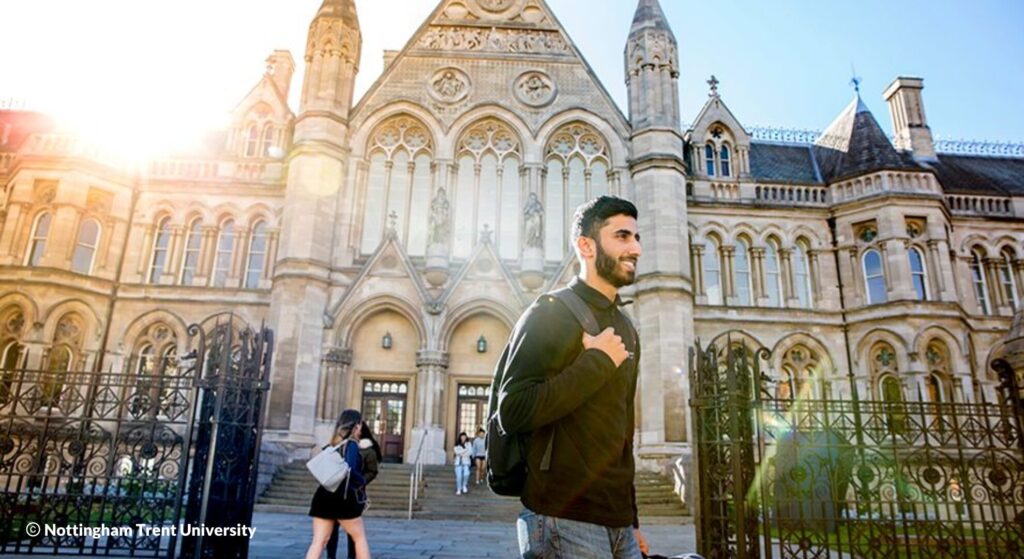
Embarking on your first year at university is an exciting but often daunting experience. With so much anticipation and a mountain of myths floating around, it’s easy to feel overwhelmed.
This article aims to clarify common misconceptions about the first year at university, offer practical advice, and provide a realistic view of what to expect. Whether you’re worried about Freshers Week, your grades, or fitting in, we’ve got you covered.
False claims about student life
Advice for first-year students
What to expect as you’re settling in
False claims about student life
Freshers Week is all about getting drunk.

Though many new students enjoy a night out for drinks with new friends, it’s not for everyone, nor is it the only activity. Freshers Week offers the opportunity to learn more about the different societies and clubs that your university has in store. And if drinking and clubbing simply isn’t for you – it’s okay to miss that part. There are more activities, such as fairs, workshops, sports events, and social gatherings that don’t involve alcohol, which could be essential to attend.
You can skip lectures and catch up online.
With rapid technological developments in education over the past few years, many students believe they can skip lectures and catch up online. However, attending both seminars and lectures is essential to help you grasp new material.
Engaging with your professors and regular attendance helps you stay on top of your coursework and better understand the subjects.

You can’t fail the first year of university.
For many courses in the UK, first-year results don’t count towards your final graduation grade, but at the very least, you must pass the first year to continue your degree to graduation.
The first year is the foundation of your studies. It’s a fantastic opportunity to learn discipline when attending class and ensuring your work is done well and in good time.
Additionally, some of the content covered in the first year serves as fundamental building blocks for your studies in later years.
Freshers are all teenagers.
Although you might make many acquaintances of your age during freshers week, plenty of people start university after the age of 21. It could be for financial reasons, a gap year or simply deciding to do something else first.
Universities are brimming with diversity, not only because students come from different backgrounds but also because they are all ages. So whether you’re 18 or 40, you’re sure to find “your people”. On the plus side, being older can be advantageous, bringing a different perspective and maturity to your studies – you’re never too old to be a fresher.

All student accommodation is dreadful.
Student accommodation has a negative stereotype, but this is outdated. Many universities offer great quality student accommodation with various room types available in safe locations. If you find none of the options provided are to your liking, you can always go with a private provider. They tend to offer extra services such as an in-house gym, cinema and, in the case of Study Inn, a spa. You can read more about advice for finding the perfect accommodation for you.
Advice for first-year students
Join societies or clubs.
Participating in societies or clubs is a great way to meet new people, pursue your interests, and enhance your university experience. Whether you’re into sports, arts, technology, or politics, there’s likely a group for you. If you have a society/club in mind that doesn’t exist, you can band up with friends or go solo to create it. Experts in philosophy, Damian Gallagher and Audrey Gilmore, have done research that demonstrates how vital joining clubs and societies is. Involvement in a student society contributes to good social integration, which is excellent for home students and even more beneficial for international students in unfamiliar territory.
Take care of your mental health.
University life can be stressful. Prioritise your mental health by practising self-care, seeking needed support, and balancing your workload with relaxation and hobbies. Universities often provide mental health resources and counselling services. If necessary, join in on mental health workshops your university hosts and talk to someone in the Mental Health Support Team. Maybe you’re not feeling ready to talk face to face with someone, so you can access student wellbeing resources online.
It’s important to look after your physical health as well. Try to exercise regularly and ensure you get adequate sleep each night.
Learn how to cook.

Knowing how to cook saves money and can help ensure a healthier, balanced diet. Cooking can also be a great way to relieve stress from hectic days if it’s something you learn to enjoy. Whether you’re a novice cook or something of a Ramsey in the kitchen, BBC Food offers a fantastic list of recipes for students.
Keep an eye on your finances.
Budgeting is crucial throughout life. Track your spending, take advantage of student discounts, and avoid unnecessary expenses. Being mindful of your finances will help to reduce stress and ensure you can enjoy your uni experience without worrying about upcoming payments and other financial items. If you need help, Study Inn offers money-saving tips for university students on its blog.
Budgeting apps explicitly designed for students make it straightforward to track your spending. This can help you avoid overspending and use your money for its intended purpose.
UniDays, Save The Student and Student Beans offer excellent student discounts. They have you covered for everything from your much-needed winter essentials to new tech for class.
It’s normal to feel homesick.
Remember, it’s normal to feel anxious or unsure initially, so take your time getting used to this new chapter – even if you must shed a tear or two. You might also feel homesick – this is a common and normal experience. Even while you’re busy building new relationships at uni, nurture the ones you have back at home by staying connected with family and friends. Times Higher Education has excellent tips like keeping busy and bringing home comforts to help you cope with homesickness and make the transition more seamless.
What to expect as you’re settling in
As you settle into university life, expect a mix of excitement and challenges. It’s also important to understand that everyone adjusts at their own pace. The initial weeks may be overwhelming, trying to figure out your new campus and maybe a new city, but it’s all part of the transition. You’ll learn to adapt to new routines, develop some independence, and gradually find your place. Researching anything you’re unsure about can be very helpful. From simple student recipes to part-time work suggestions, you can get help with almost anything online. For helpful resources to ease your transition, you can look at a great guide to useful websites for university students.

Study Inn offers luxury student accommodation in Loughborough, Nottingham, Bristol, Exeter, Leeds, and Leicester. Our accommodation features modern, spacious student rooms with everything you’ll need for student living. With large, bright social areas, an in-house gym, and a spa, our fully inclusive services, 24-hour security, and all the necessary facilities allow you to live and study in a relaxed environment. Book a viewing or enquire with us to make your university experience comfortable and unforgettable.






